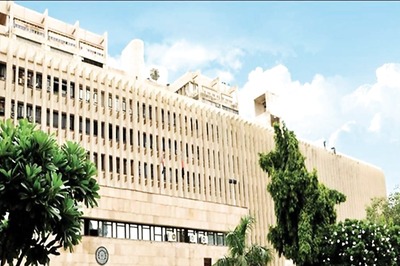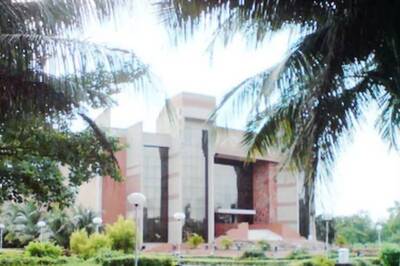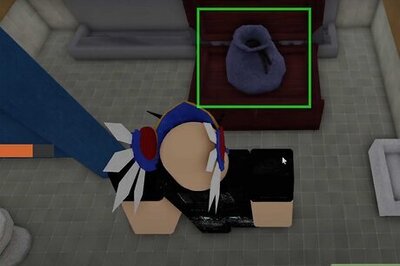
views
HYDERABAD: Sounds far-fetched, doesn't it? Well, welcome to the advanced world of Nano technology which makes it possible to deliver low-cost and instant solutions. At the ongoing annual conference of the Institute of Electrical and Electronics Engineers (IEEE) India council, ‘Indicon 2011’ in Hyderabad, professor V Ramgopal Rao of IIT Bombay (left in pic) unveiled products developed by Nano Sniff Technologies Private Limited, an entrepreneurial venture at the institute.“Both the problems of explosives and cardiovascular diseases are addressed through the basic design of a nano-mechanical cantilever system (NCMS). These cantilevers can be arrayed on a chip and coated with materials such as antigens in the case of a disease detection system. When blood sample from the patient is laid on the array, the antigen reacts with the specific antibodies present in the patient’s sample and results can be visualized. In case of explosive detection, a pump samples the explosives in vapour phase,” explains the professor who is the institute chair professor at the department of Electrical engineering in IIT Bombay.Of special interest is the diagnostic-kit for cardiac diseases being developed by his group which is scheduled to go for hospital trials soon. Designed as a point-of-care system, the kit can be used by even a trained nurse, instead of the time lost in carrying out a blood test at a pathological lab. “Often a patient rushes to the hospital complaining of discomfort in the heart. The first test to be carried out is an ECG and if it fails to detect any anomaly, the routine blood test takes 24 hours or more. We are looking at minimizing the time gap in detection to deliver treatment on-time," he explained.The best part is that the prototype being developed will cost a nominal amount, probably just about Rs 100 and can be administered immediately by trained medical staff, added Ramgopal Rao.The use of polymer in crafting the array on a chip instead of silicon and the process of micro-fabrication makes the technology affordable. “Each square array measures around 0.1 square millimetres in area. Once the wafer is processed, it becomes cost-effective produce multiple copies,” adds the developer, giving an insight into the scale and technology involved in the process.The project has been shaped over a period of six years and will be marketed by the Nano Sniff Technologies, incubated by the Society for Innovation and Entrepreneurship (SINE) at IIT Bombay. “Research should be carried out with the mind-set of developing marketable technology. Those developing innovative products can either choose to transfer the technology to a company or even better, bring it out in the market on its own,” comments Ramgopal Rao on a large number of processes being confined to laboratories. All in all the project seems to have adopted a ‘Do-it-yourself’ motto which hopes to bring cutting edge technology closer to life on a more economic price-scale.




















Comments
0 comment